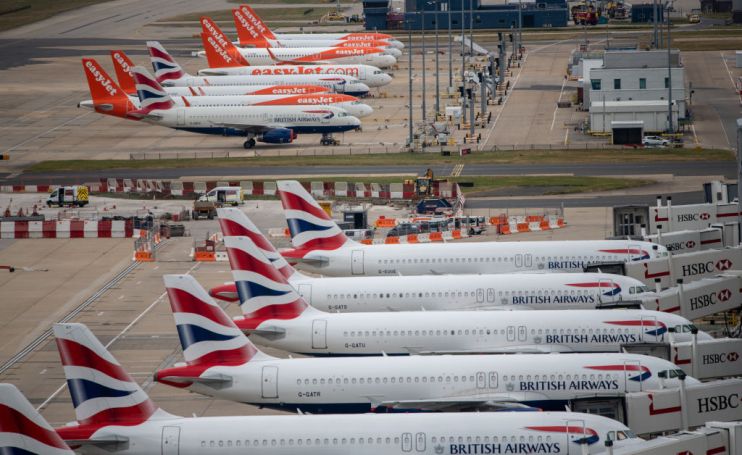UK competitiveness as base for big airlines key to unlocking £111bn by 2050, report says

The UK could benefit to the tune of £111bn and create over 629,000 local jobs by 2050 if it stays competitive as a hub for airlines to be based.
Transport consultancy Steer’s report, commissioned by industry body Airlines UK, said propping up British-based carriers boosts local employment and supply chains, whilst financing public services through national insurance and VAT.
Each UK-based aircraft directly supports 400 jobs and adds £27m GVA to the economy, as opposed to 100 jobs and £7m GVA when overseas airlines operate UK routes, analysis of data from pre-pandemic years’ 2018 and 2019, shows.
It comes after major British carriers including EasyJet, Virgin Atlantic and British Airways, warned in March that a since confirmed inflation-linked hike to Air Passenger Duty (APD) tax – a duty unique to the UK and which charges based on how far passengers fly – would push up costs for consumers and affect demand.
Concerns surrounding the “punitive” APD hike followed years of jostling over the tax, with the sector warning in 2019 it had impacted the UK’s international connectivity and contributed to “a cost base that hampers the ability of UK airlines to open new viable routes.” As airlines faced crisis amid the pandemic, the fee was reduced from levels seen pre-pandemic.
Tim Alderslade, CEO of Airlines UK, said that the research highlights “the importance of keeping the UK a competitive place to base and grow an airline.”
“As we hit peak summer travel, this report showcases the huge value that based airlines bring to the whole of the UK, not just for leisure travel but also for UK businesses and companies trading overseas.”
Airlines UK – which represents a slew of British carriers – said that should British airlines’ share of passengers fall 10 per cent before the half century mark, the UK would lose around £5bn in GVA.
Steers’ findings also coincide with an extraordinary rebound in demand that has swept across aviation this summer and resulted in major airlines breaking free from the lows of the pandemic – when global lockdowns grounded fleets and saw demand to fall off a cliff edge.
Sean Doyle, CEO of British Airways, said: “As we experience our busiest summer travel period since 2019, the report shows the value that UK airlines bring to the economy and how much our island nation needs the connectivity that airlines offer.”
Virgin Atlantics’ boss Shai Weiss, said: “UK airlines, including Virgin Atlantic, enable essential connectivity and trade that creates vital jobs and economic growth.”
He added that government policy decisions on behalf of the sector would be “crucial” to maintaining Britains’ global competitiveness, highlighting high charges levied on airlines by Heathrow airport.
This summers’ record demand will provide a significant boost for other sectors, according to Steer, with UK-based airlines acting as a “catalyst” for aircraft maintenance, tourism and foreign investment, through an estimated 887,000 jobs.
The aircraft maintenance industry, which includes high flyers Rolls Royce – whose shares have skyrocketed in recent months on aviations’ rebound – would contribute around £1bn less to UK GDP if all international services were provided by foreign carriers.
Responding to the findings, aviation minister Baroness Vere said the “UK is a global leader in aviation connectivity and innovation, supporting jobs and businesses across the country.”
She added that the government was particularly focussed on boosting investment in decarbonation, with a £180m funding commitment provided to support the development of Sustainable Aviation Fuels (SAFs).